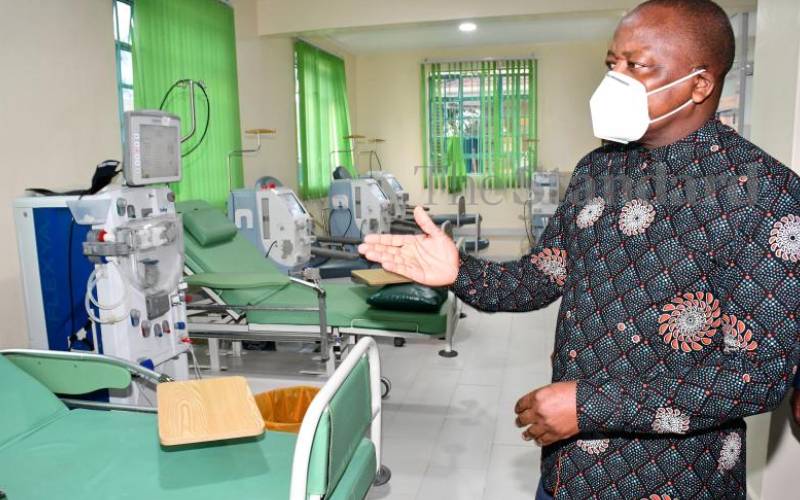×
The Standard e-Paper
Stay Informed, Even Offline

Health Cabinet Secretary Mutahi Kagwe at Meru Teaching and Referral Hospital. [Nicholas Nthenge, Standard]
Kenya has been asked to spend Sh4.4 billion for various health areas without inviting the kind of scandals that faced the Kenya Medical Supplies Agency (Kemsa).